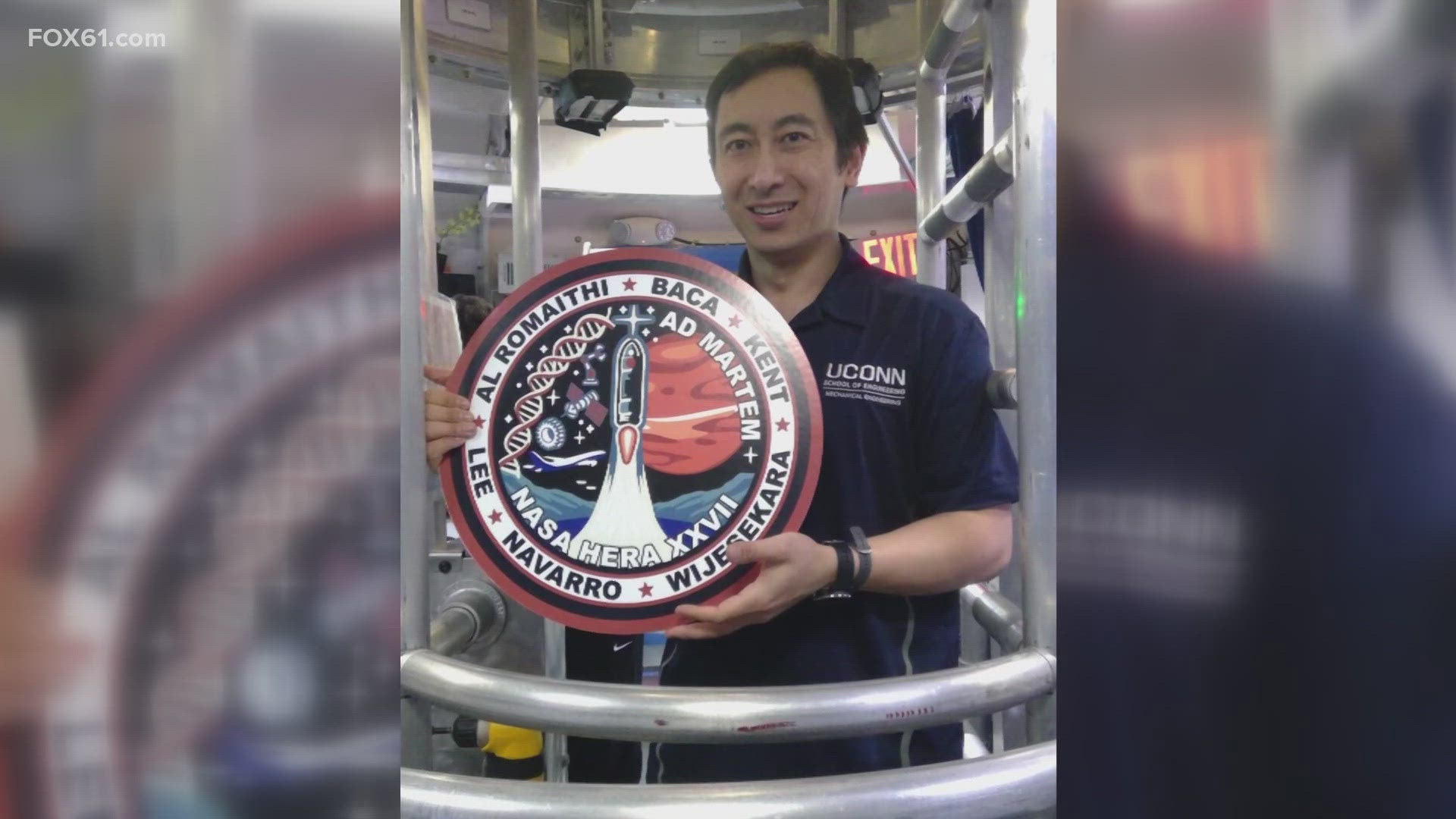HOUSTON — For as long as Dr. Jason Lee could remember, he felt a gravitational pull toward space travel.
“I always wanted to be an astronaut, even as a kid. My dad was a propulsion engineer in California,” he said. “I always watch rockets launch, so that was a dream.”
And for half a summer, the University of Connecticut professor turned that dream into reality. In mid-May, he suited up and put on the NASA badge to join three other volunteers for a once in a blue moon adventure.
“It was incredible,” Lee told FOX61, in his first TV interview. “I tell people it's like a space camp for adults. I usually do the testing, so it's, it was really interesting to get on the other side of it.”
At the Johnson Space Center in Houston, the crew climbed inside a “Human Exploration Research Analog," or HERA, habitat, getting a glimpse of what a long-duration space journey entails.
“We were in a habitat 650-square feet, like a small apartment with four crew members. We were there for 45 days, and it was testing isolation,” Lee said. “There are a number of experiments that we were running. A lot of it is how do we work as a team? How do we conduct procedures with different technologies?”
It’s all part of a study by NASA that simulates what astronauts would experience on a real mission to Mars, something NASA is hoping to do by the late 2030s.
“I love the sound simulations that they use in there. They would simulate the pressurization and depressurization of the airlock. Basically, that was our way of simulating walking out of the habitat, going onto the Martian surface,” he said.
Volunteers spent their days conducting experiments, navigating stressful scenarios like communication delays with planet earth and living on shelf-stable food.
“We had camping food essentially,” Lee said. “We had a microwave and a hot water, so it was dehydrated food. A lot of nutritional bars. A lot of us lost weight. I lost 15 pounds in there just because it's just calorie deficit.”
They also stuck to strict schedules, keeping their minds and bodies active, similar to what actual NASA astronauts do up in space.
"Keeping them busy is very important in isolation,” he said. “ If you're just sitting there and you have nothing to do that can be mentally very difficult.”
Lee said living in isolation and confinement has additional challenges.
“Missing family was a big part of it. We got to communicate with family once a week,” he said. “And then, time delay increased because we're simulating flying to Mars. So, the further we got into the mission, the longer the delay became.”
Lee plans to apply what he learned about teamwork and stress management in his teachings at UConn and hopes the research from his test group helps NASA as it plans its next shoot for the stars.
“I think the moon is something that we should explore,” Lee said. “ I think Mars is, is right there. It's within our grasp. I think we should explore as much of space in general as possible.”
NASA will be using data from this group and others to determine how to best support the health and performance of future manned missions that journey to the moon and eventually the red planet.
----
Bridgette Bjorlo is an anchor and reporter at FOX61 News. She can be reached at bbjorlo@fox61.com. Follow her on Facebook, X, and Instagram.
----
Do you have a story idea or something on your mind you want to share? We want to hear from you! Email us at newstips@fox61.com.
----
HERE ARE MORE WAYS TO GET FOX61 NEWS
Download the FOX61 News APP
iTunes: Click here to download
Google Play: Click here to download
Stream Live on ROKU: Add the channel from the ROKU store or by searching FOX61.
Steam Live on FIRE TV: Search ‘FOX61’ and click ‘Get’ to download.

